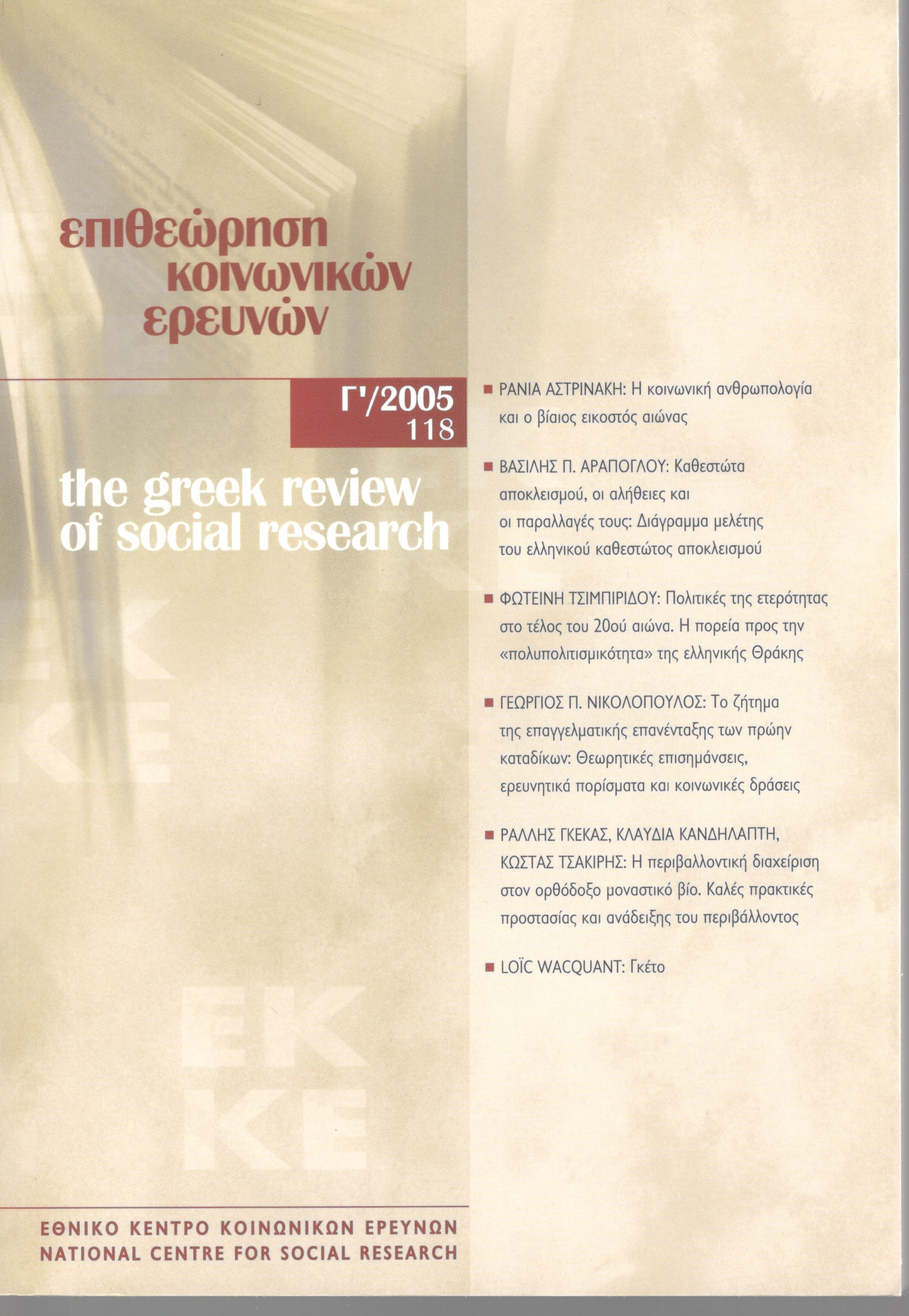Η κοινωνική ανθρωπολογία και ο βίαιος εικοστός αιώνας
Abstract
Η σχέση της ανθρωπολογίας με τη βία και τα ποικίλα φαινόμενα της μπορεί να χαρακτηριστεί ως σχέση αμηχανίας. Μολονότι η περίοδος ζωής της ανθρωπολογίας συμπίπτει με την πιο βίαιη περίοδο που γνώρισε η υφήλιος, και μολονότι η βία αποτελεί αναπόσπαστο μέρος της κοινωνικής και πολιτισμικής ζωής, σε όλο και μεγαλύτερη ένταση και συχνότητα, τα φαινόμενα βίας παρέμειναν «τυφλό σημείο» για τον κλάδο. Η ανθρωπολογία επηρεασμένη από τις δυτικές προκαταλήψεις, σύμφωνα με τις οποίες η βία δεν συμμετέχει στην κατασκευή του κοινωνικού, του πολιτικού και του πολιτισμικού, απέφυγε συστηματικά, έως πρόσφατα, να προσεγγίσει αναλυτικά τα φαινόμενα της, να τα καταστήσει αντικείμενο μελέτης και να αρθρώσει ένα συγκροτημένο προβληματισμό. Με αυτόν τον τρόπο όμως, απέκλεισε από το πεδίο ανθρωπολογικής γνώσης και κατανόησης ένα σημαντικό μέρος της κοινωνικής ζωής και της ανθρώπινης δραστηριότητας.
Article Details
- How to Cite
-
Αστρινάκη Ρ. (2016). Η κοινωνική ανθρωπολογία και ο βίαιος εικοστός αιώνας. The Greek Review of Social Research, 118, 3–29. https://doi.org/10.12681/grsr.9511
- Issue
- 2005: 118 Γ΄
- Section
- Articles

This work is licensed under a Creative Commons Attribution-NonCommercial 4.0 International License.
Authors who publish with this journal agree to the following terms:
- Authors retain copyright and grant the journal right of first publication with the work simultaneously licensed under a Creative Commons Attribution Non-Commercial License that allows others to share the work with an acknowledgement of the work's authorship and initial publication in this journal.
- Authors are able to enter into separate, additional contractual arrangements for the non-exclusive distribution of the journal's published version of the work (e.g. post it to an institutional repository or publish it in a book), with an acknowledgement of its initial publication in this journal.
- Authors are permitted and encouraged to post their work online (preferably in institutional repositories or on their website) prior to and during the submission process, as it can lead to productive exchanges, as well as earlier and greater citation of published work (See The Effect of Open Access).



